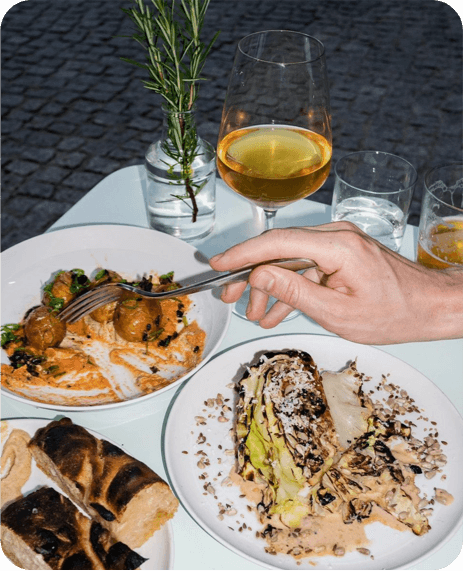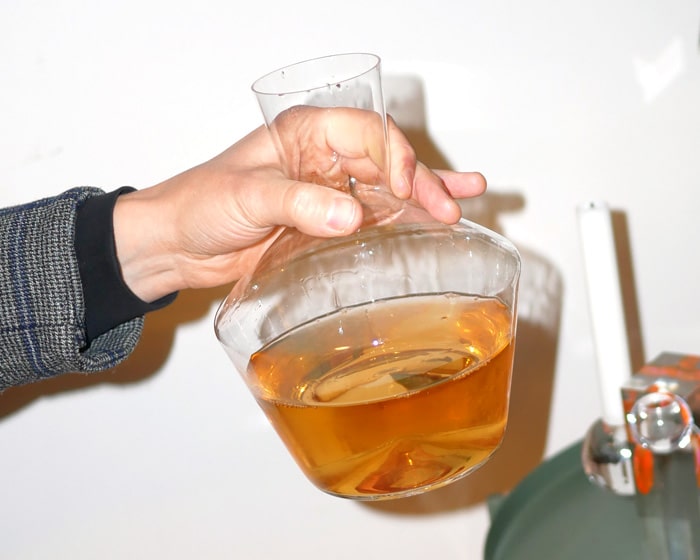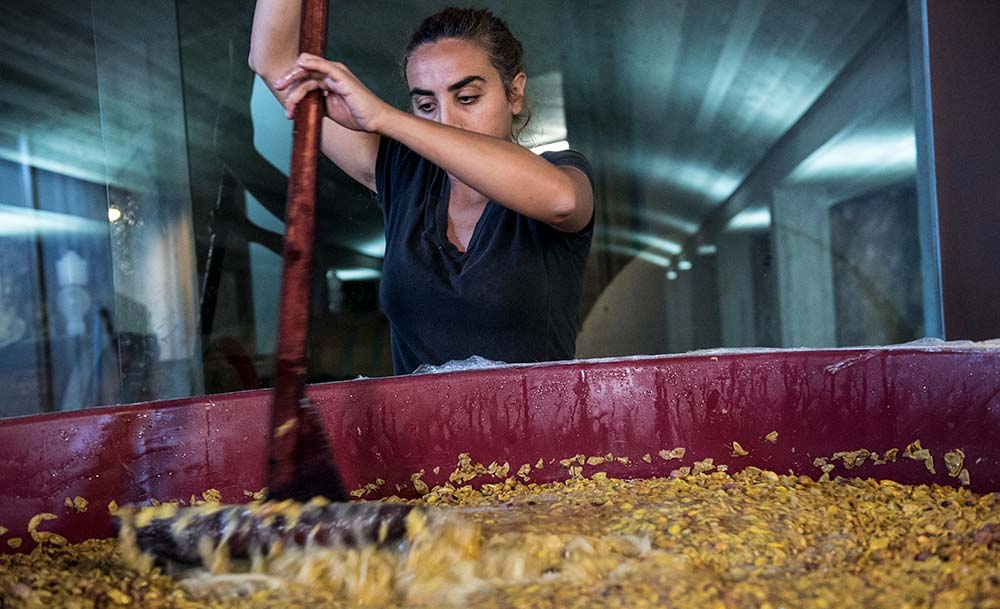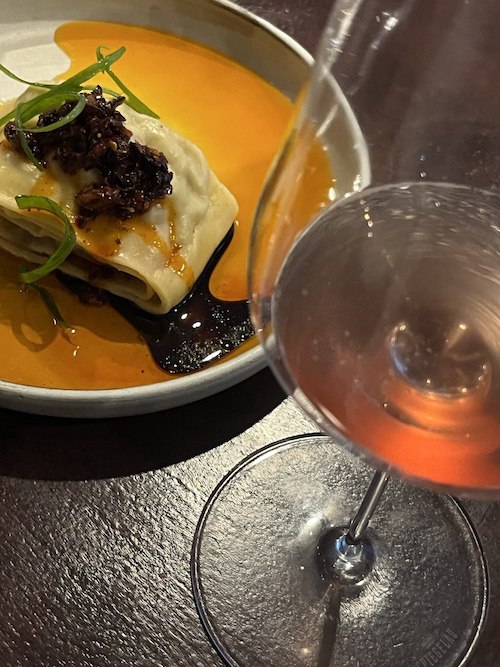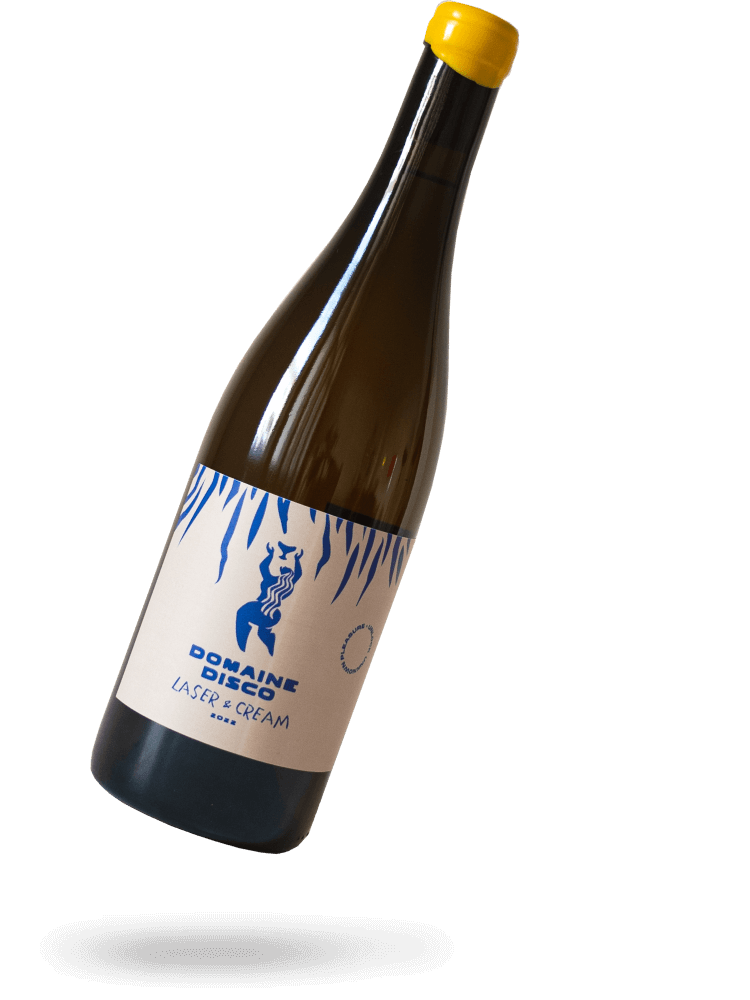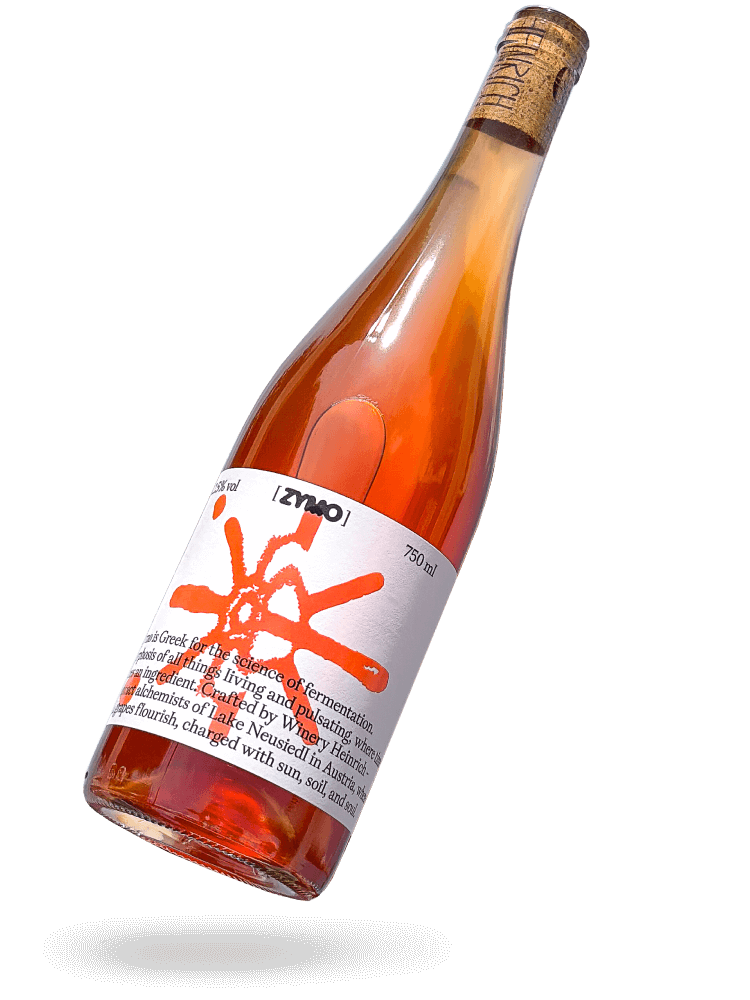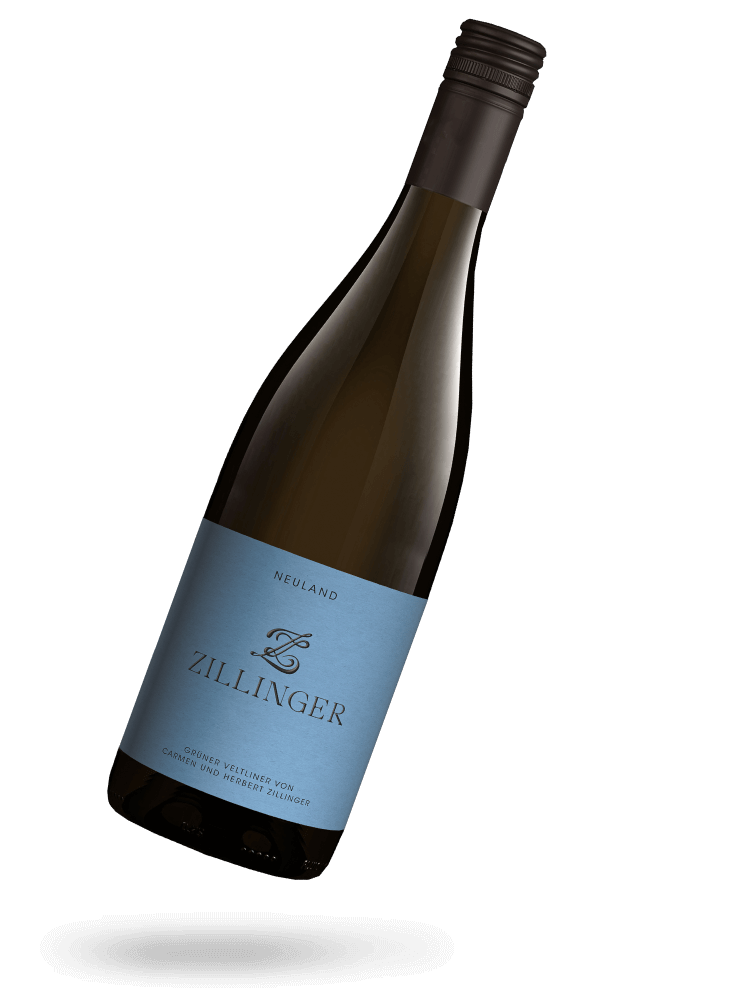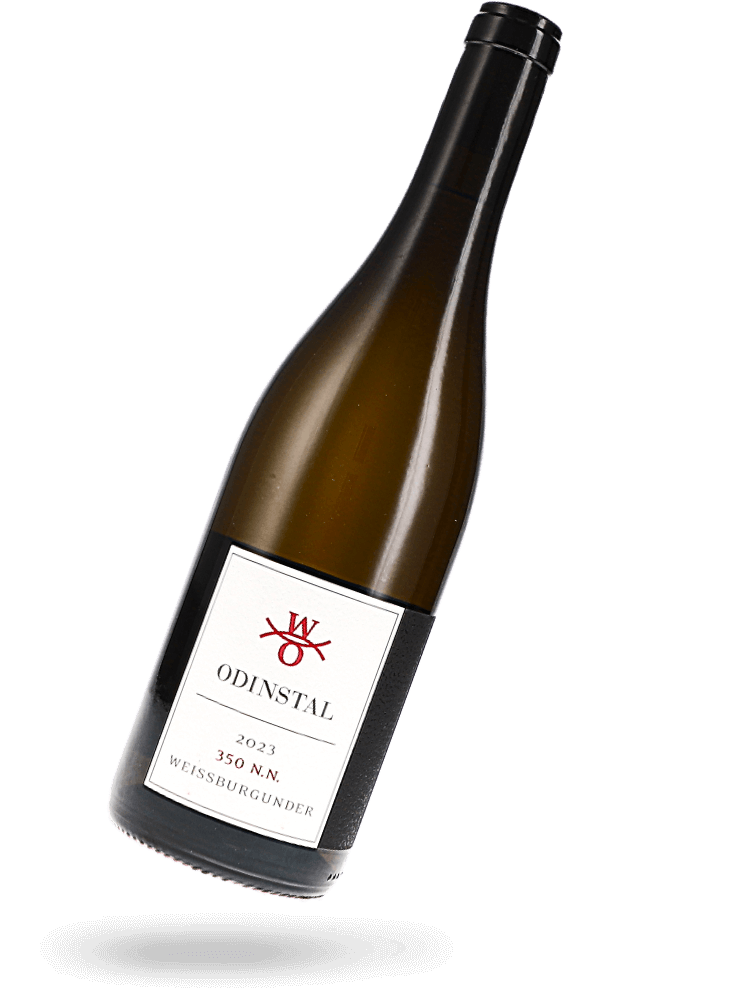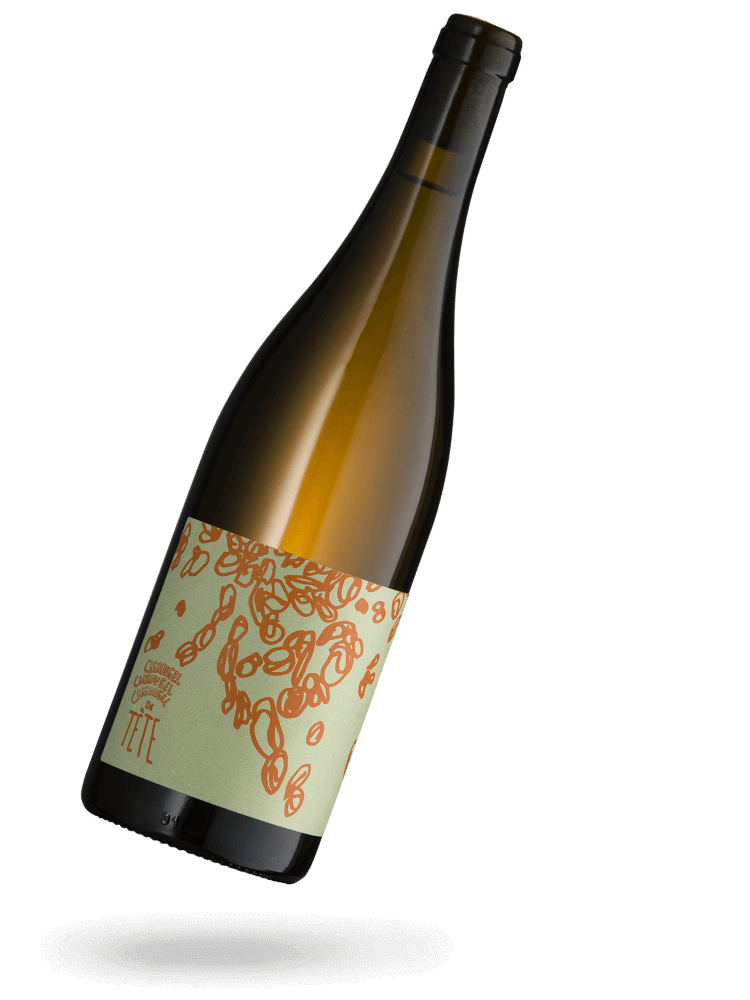What are orange wines? Are they automatically also natural wines?
Although many orange wines can be found among natural wines, this initially has nothing to do with it. An orange wine is a white wine that is made like a red wine. This means that the grape skins remain on the mash (the name given to the mash that is still fermenting, including the berry skins and pips) during fermentation, which can take several days or even a few weeks, depending on the style and desired color, before it is pressed. And this is precisely how the colour pigments contained in the berry skin create orange to amber tones in the wine.
This means that an orange wine can be made from any white wine, whether natural or not. Orange wines are therefore often also natural wines, as their winemakers want to give the wine more complexity and character through the prolonged contact with the mash. Orange wines are also called mash-fermented wines.











